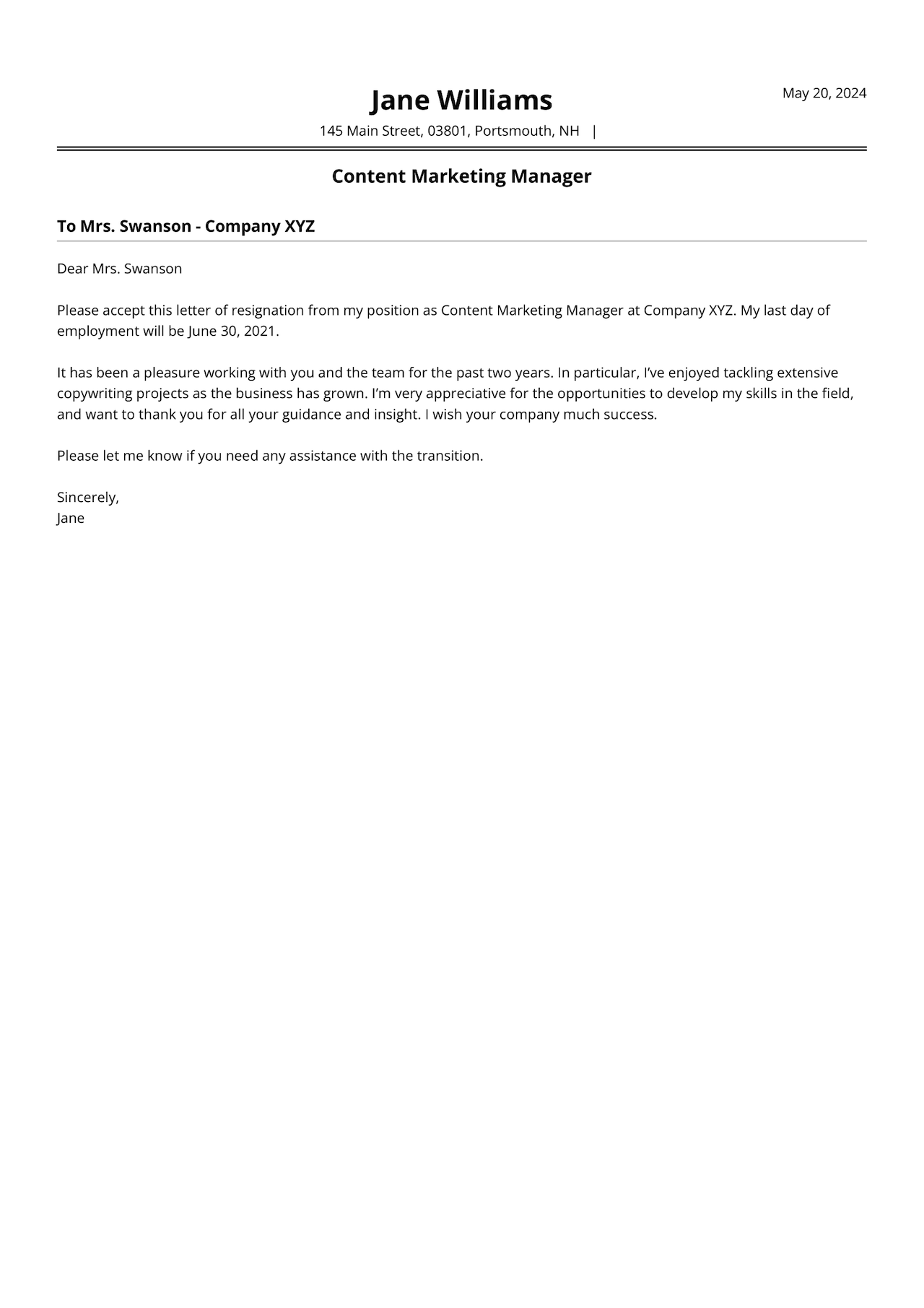Have you ever found yourself in a position where you’ve decided it’s time to move on from your current job? The thought of resigning can be both thrilling and daunting at the same time. One of the key steps in this process is writing a resignation letter. But what should you include in it? How can you ensure it reflects your professional demeanor while also conveying your feelings about your departure?
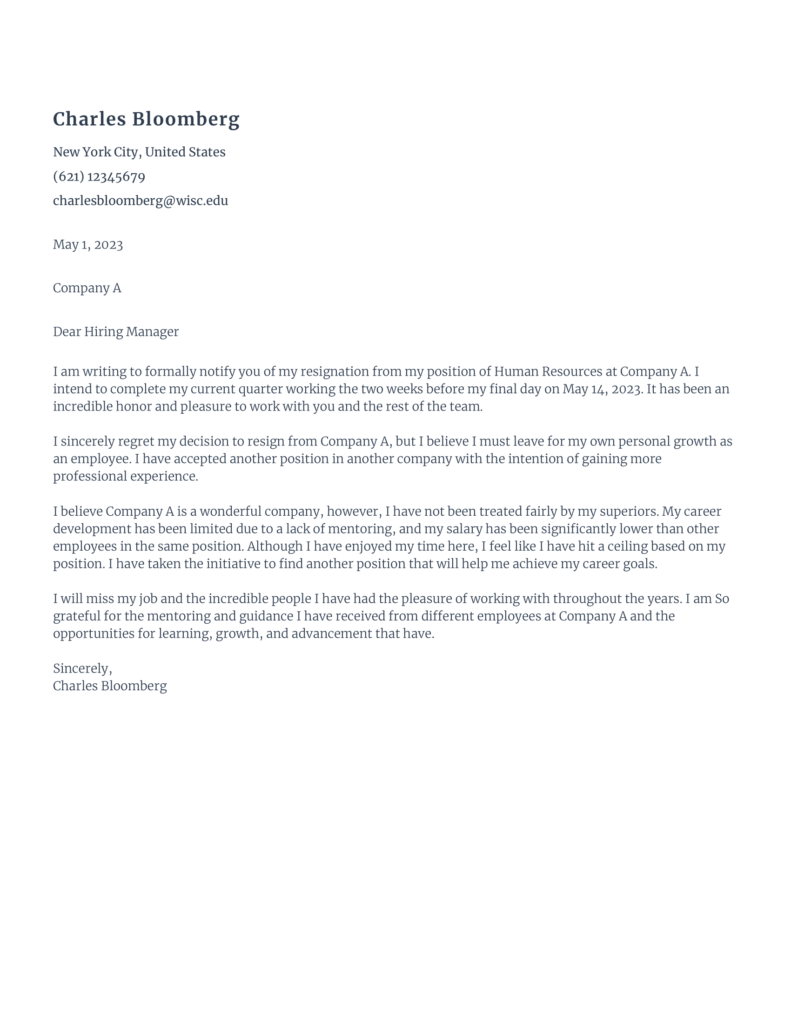
Understanding the Purpose of a Resignation Letter
A resignation letter isn’t just a formality; it serves multiple important purposes. First and foremost, it acts as a formal notification to your employer about your intent to leave. It documents your resignation and your last working day. Additionally, a well-crafted letter can help maintain a positive relationship with your employer and provide a sense of closure for both you and your team.
Why You Need to Write One
Even if you have verbally informed your supervisor of your decision to leave, a resignation letter is an essential part of your professional departure. It is a chance to articulate your reasons for leaving, express gratitude, and outline any remaining responsibilities. Plus, many companies have policies requiring written notice, so it’s crucial that you adhere to such protocols.
Components of a Resignation Letter
Writing a resignation letter doesn’t have to be complex. The structure includes several key components that help convey your message effectively. Understanding these components will make the writing process smoother for you.
1. Contact Information
This section typically includes your name, address, phone number, and email, followed by the date. Then, include your employer’s name, along with their title and the company’s name and address. This establishes formality and professionalism.
2. Salutation
Use a respectful greeting. “Dear [Manager’s Name],” is a straightforward and appropriate choice. If you have a relationship that’s been more informal, feel free to adjust accordingly, but keeping it professional is generally best.
3. An Explicit Statement of Resignation
This is the heart of your letter. Clearly state that you are resigning and include your last working day, following any agreed notice period. You might say something like, “I am writing to formally resign from my position as [Your Job Title]. My last day will be [Date].”
4. A Gratitude Statement
Express appreciation for the opportunities you’ve had in your role and the support received from your employer and colleagues. This helps to maintain goodwill and connections for future networking.
5. Offer Assistance During Transition
Mention your willingness to assist in the transition process to show that you care about your team and the company. You could write something like, “I am committed to making this transition as smooth as possible and am happy to assist in training my replacement or wrapping up my duties.”
6. Closing
End your letter on a friendly note. Use a phrase like “Sincerely” or “Best Wishes,” followed by your name. You can also include your signature if you are handing in a printed letter.
Example Format
Here’s how your resignation letter could look in a concise format:
[Your Name]
[Your Address]
[City, State, Zip]
[Your Email]
[Your Phone Number]
[Date]
[Manager’s Name]
[Company’s Name]
[Company’s Address]
[City, State, Zip]
Dear [Manager’s Name],
I am writing to formally resign from my position as [Your Job Title]. My last day will be [Date].
I want to express my sincere gratitude for the opportunities I had to grow and learn during my time here. I genuinely appreciate your support and the chance to work alongside a talented team.
I am committed to assisting in the transition and will do my utmost to ensure my responsibilities are settled before my departure.
Thank you once again for everything.
Sincerely,
[Your Name]
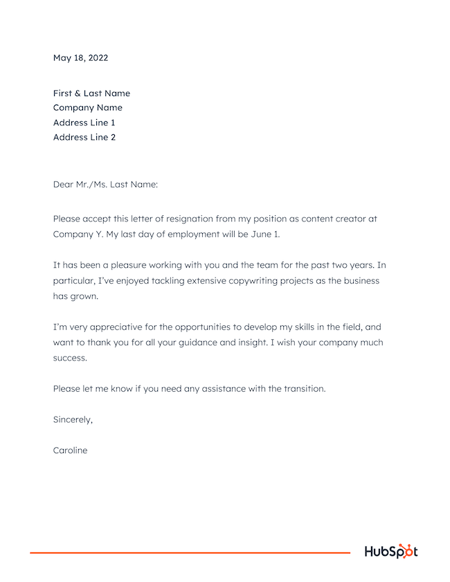
Tips for Writing Your Letter
Every resignation letter you write can have a positive impact, not only on your current employer but also on your future career. Here are some handy tips to help you craft that perfect letter:
1. Keep It Short and Sweet
Your letter doesn’t need to be long to be effective. Aim for one page or less. Include only the necessary information to keep it concise and to the point.
2. Be Professional
Even if you’re leaving due to negative experiences, maintaining professionalism in your letter is crucial. Avoid venting frustrations in the letter; save that for a personal conversation with a trusted friend.
3. Use Formal Language
Your language should reflect the professional environment you’re leaving. Avoid slang and overly casual language. This sets the tone for a respectful departure.
4. Proofread
Take the time to read your letter for any spelling or grammatical errors. It’s important to present yourself well as you exit the company.
5. Deliver in Person if Possible
If the circumstances allow, consider handing your letter to your employer in person. This opens a channel for you to discuss your departure and express your thanks directly.
Special Situations
Sometimes, your reasons for resigning may be nuanced or unique. Here are a few special situations you might want to consider when crafting your resignation letter.
Resigning for a New Job
If you are leaving for a new opportunity, feel free to mention that in your letter. It can be nice to share your exciting news while remaining gracious. Just keep specific details about your new job to a minimum.
Leaving Due to Personal Reasons
If you’re resigning for personal reasons but aren’t comfortable disclosing much, it’s perfectly fine to simply state that you’re stepping down due to personal circumstances.
Immediate Resignation
If you need to leave immediately, which can be tricky, acknowledge in your letter that you understand this may create challenges. Be clear and straightforward about the reasons.
Part-Time Roles or Contracts
If you’re in a part-time role or a contractual position, the same standards generally apply. Ensure that you communicate your last working day clearly and keep it professional.
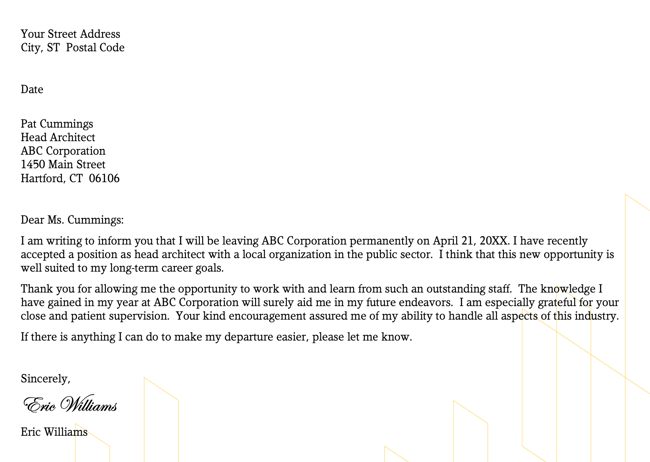
The Impact of Your Resignation Letter
Your resignation letter acts as a representation of your time at the company. Leaving on a positive note not only benefits you but can also influence the company culture.
Reputation Reflects on Future Opportunities
The professional world can be smaller than you think. Future employers might cross paths with your former colleagues. Leaving a positive impression can lead to good references and networking opportunities.
A Sense of Closure
Being mindful about how you resign can facilitate closure for you and your team. It helps people process your departure, which can ease any potential feelings of uncertainty or loss.
What to Do After Submitting Your Letter
After you have submitted your letter, the journey continues. Here’s what you should consider as you transition to your next phase.
1. Follow Up Verbally
It’s a good practice to follow up your written letter with a verbal conversation, especially with your manager. This reinforces your intentions and allows you to provide clarification if needed.
2. Wrap Up Your Duties
Use the time before your departure to tie up any loose ends. Organize your workspace and document any key processes that others may need to know moving forward.
3. Stay In Touch
Leaving a job doesn’t mean you need to sever all connections. Maintain relationships with coworkers and management. These connections can prove invaluable in your next career steps.
4. Reflect on Your Experience
This transition period is an excellent opportunity to reflect on your growth during your time in the role. Take the time to evaluate what you’ve learned and what you’d like to bring to your next job.
5. Prepare for Your Next Adventure
Whether it’s a new position or a different path altogether, be sure to mentally prepare yourself. Update your resume, practice for interviews, and take the lessons learned from this job to push yourself forward.
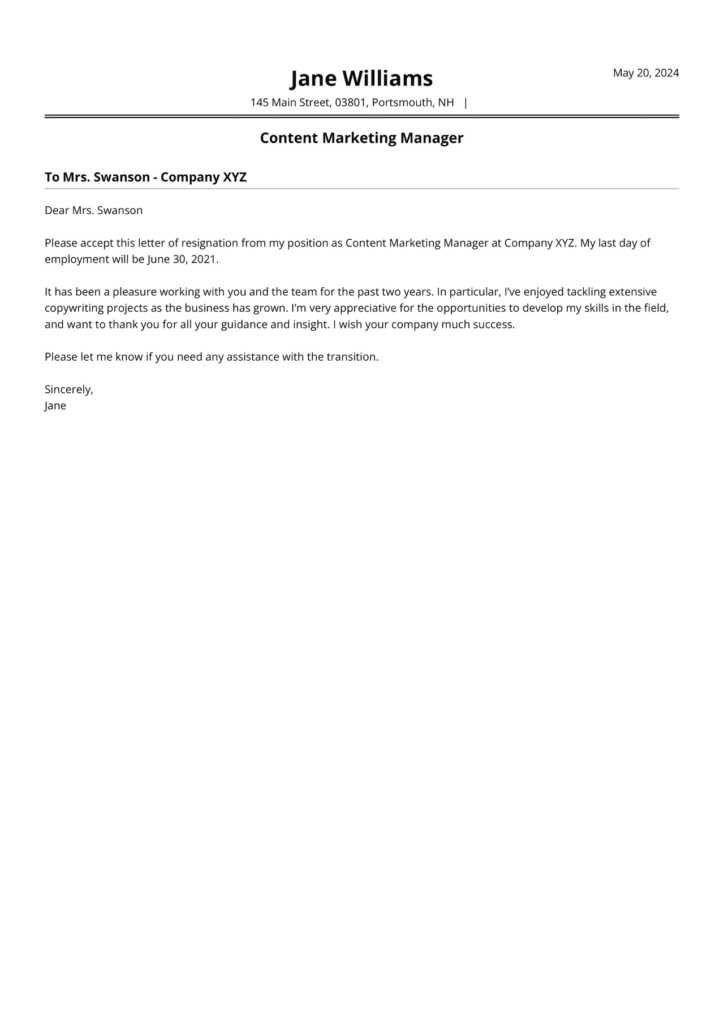
Final Thoughts
Writing a resignation letter is merely a step in the larger journey of your career path. Each letter holds the potential to reinforce relationships and respect for you and your previous employer. Remember to approach this task with a friendly, professional mindset.
In the end, your resignation letter is not just a sign-off; it represents your values, professionalism, and the experiences you’ve gained along the way. As you prepare to make this transition, keep in mind that every farewell opens a door to new opportunities. So, breathe deeply, and take comfort in knowing you’ve made a thoughtful decision. Happy writing!
